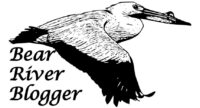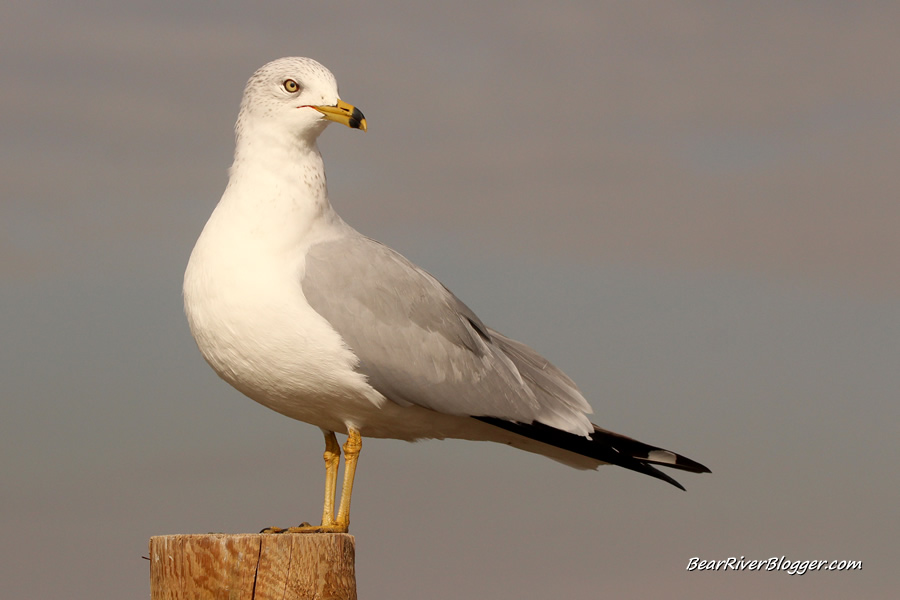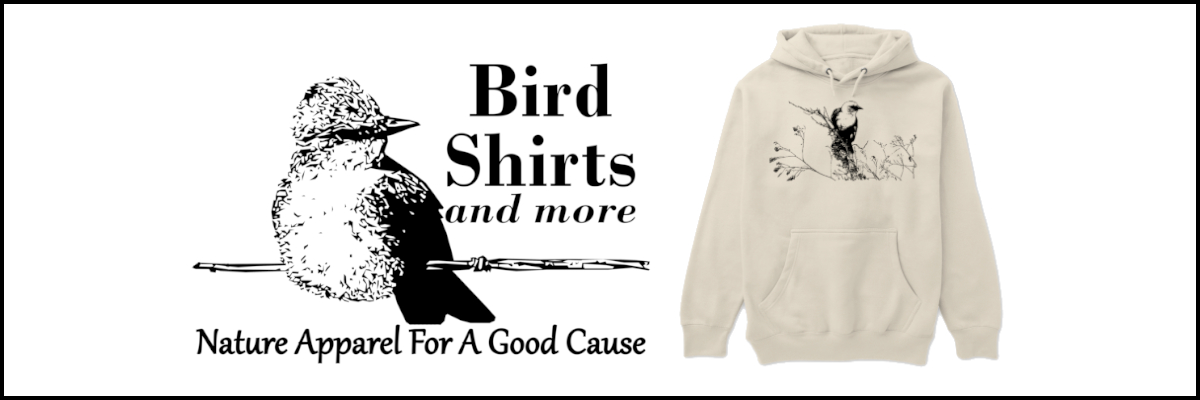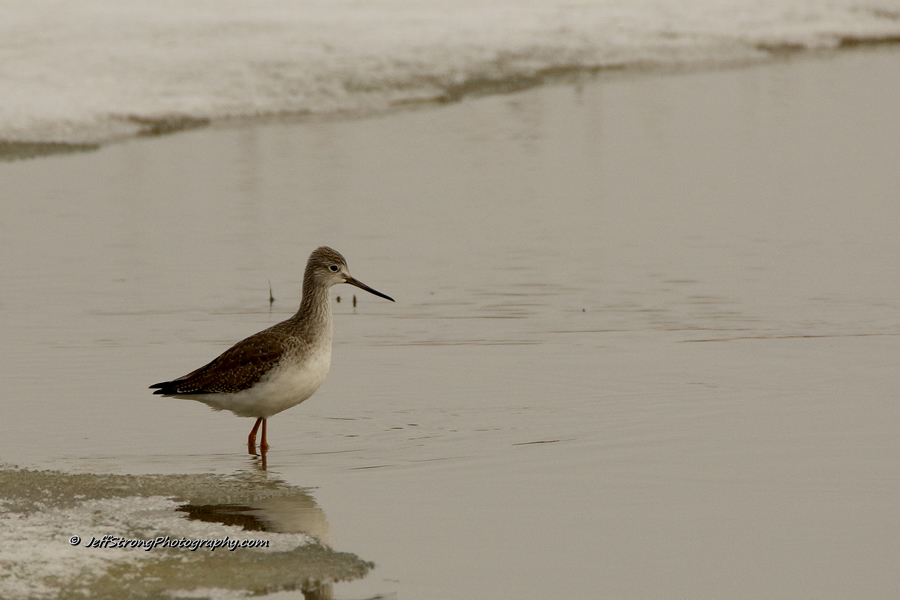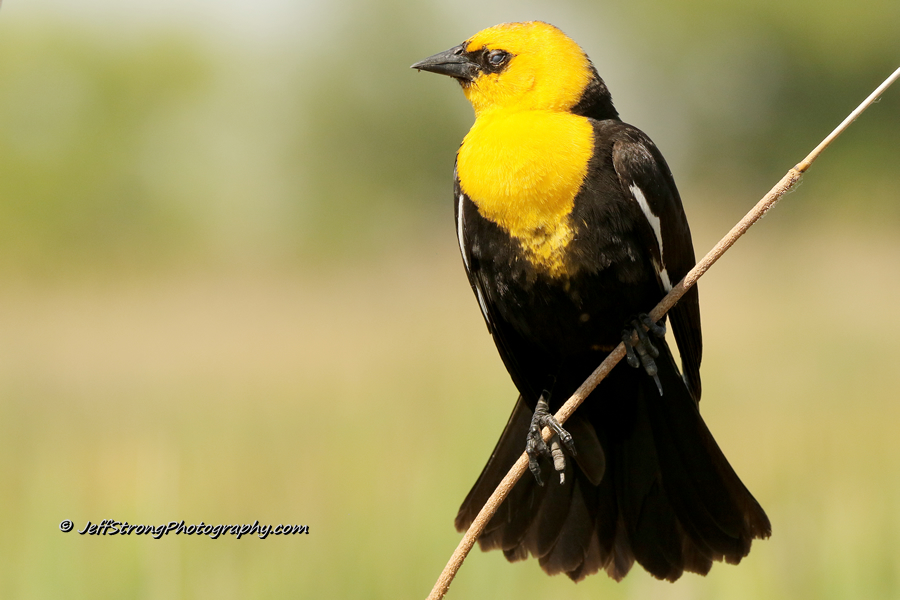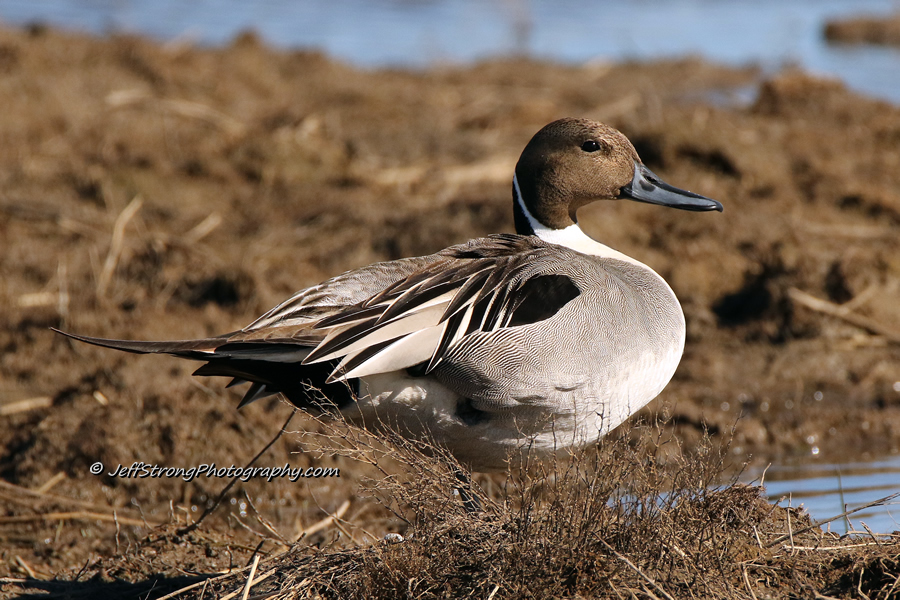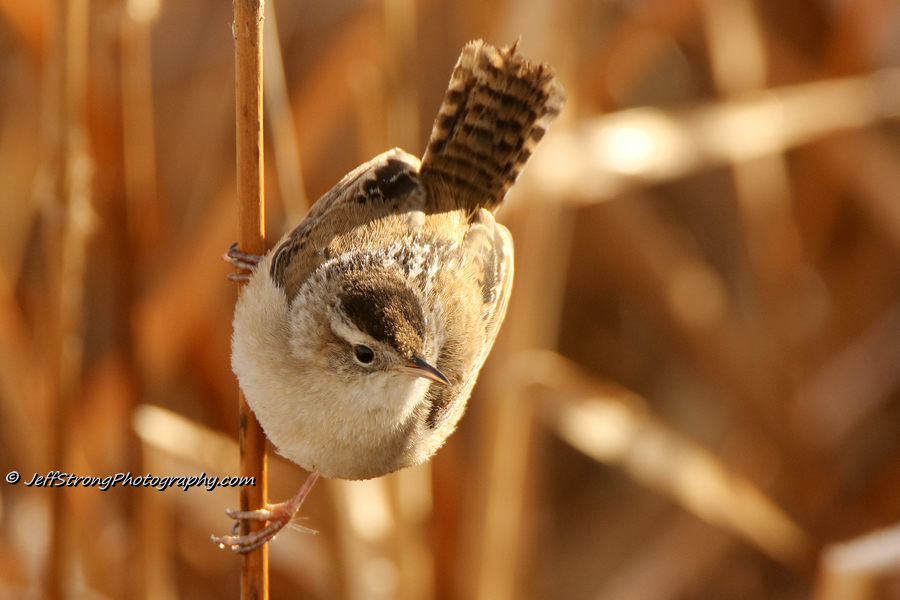I’ll admit I am not very well versed in gulls with regards to identification, simple biology, or even just good old-fashioned basic birdwatching knowledge.
In fact, I will go as far as to confess I’m downright horrible at just identifying gulls if truth be known.
But in my defense aren’t they all just “seagulls” anyways so what’s the problem with not knowing anything about gulls?
First off, as a birder, we all should know there is no such bird actually termed “seagull”.
That’s a common name society has unfortunately dubbed upon all gulls from a lack of knowledge and understanding about this group of quite interesting seabirds.
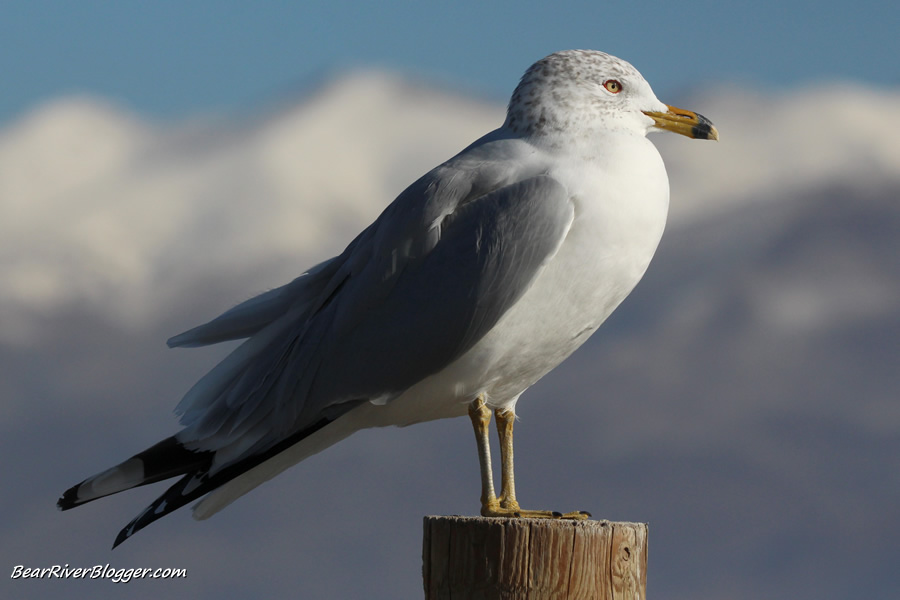
Secondly, and maybe even more importantly, by not knowing anything about gulls I am now realizing I’ve been missing out on some great winter birdwatching and photography opportunities on the Bear River Migratory Bird Refuge auto tour route over the years due to my being, well, simply put, naive.
Ouch, that was actually hard to admit but the time has come to finally right the wrong as it were, and replace my ignorance of gulls with a little knowledge by starting to learn about the different species of gulls as I come across them on these birding and blogging excursions.
As such, no longer will I let this self-proclaimed deficiency in “gull-ology” slow down my weird obsession with a gull on a pole even one bit.
Yes, you read that right, I’ve been nursing a small obsession with a gull on a pole for several years now.
And to be more precise, it’s actually a ring-billed gull on a pole if we’re going to get technical here but gull on a pole just sounds that much better for writing purposes so that’s what I’m sticking with.
So as you can see, yes, I am slowly but surely learning about some of the different types of gulls, even if it is just bit by bit.
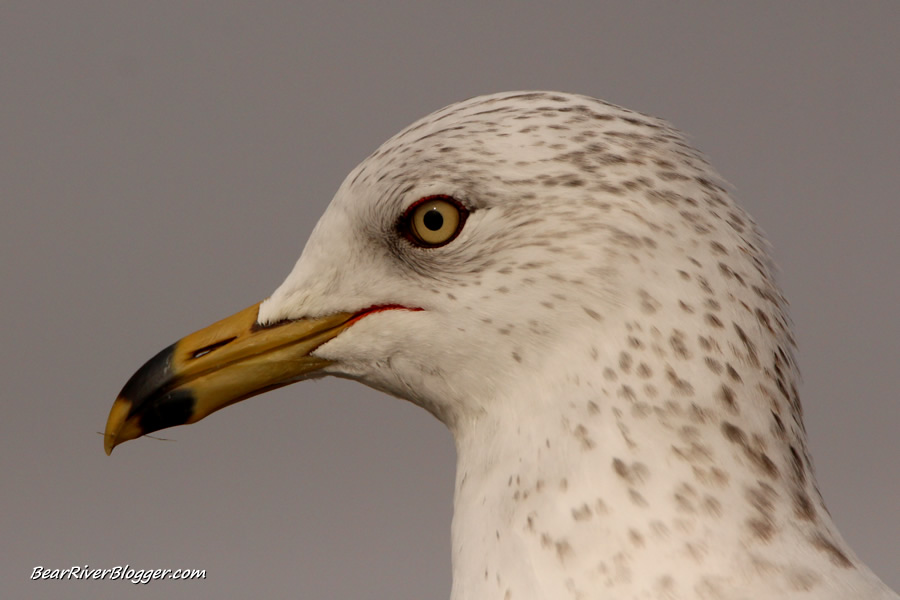
And some short but interesting tidbits about what I’ve learned so far regarding the ring-billed gull are coming below to hopefully inspire other bird watchers to take a greater interest in this and all other gulls during their own birding adventures.
This obsession with a gull on a pole started a couple of years ago during a winter birding trip to Farmington Bay where I was hoping to find and photograph the sometimes quite numerous bald eagles that show up and feed on this small state-owned nature preserve.
The drive at Farmington Bay is pretty short when compared to the Bear River Migratory Bird Refuge auto tour route and much like the refuge, it’s mostly on a gravel road as well.
But despite its brevity, the drive at Farmington Bay does lead to some great birdwatching at times, especially during winter and early spring when the bald eagles and tundra swans are in town.
On the far southern end of this drive sits a parking lot with a few poles along certain parts of the roadway, most likely to keep people from getting too close to the road’s edge and sliding off into the water below I’d imagine.
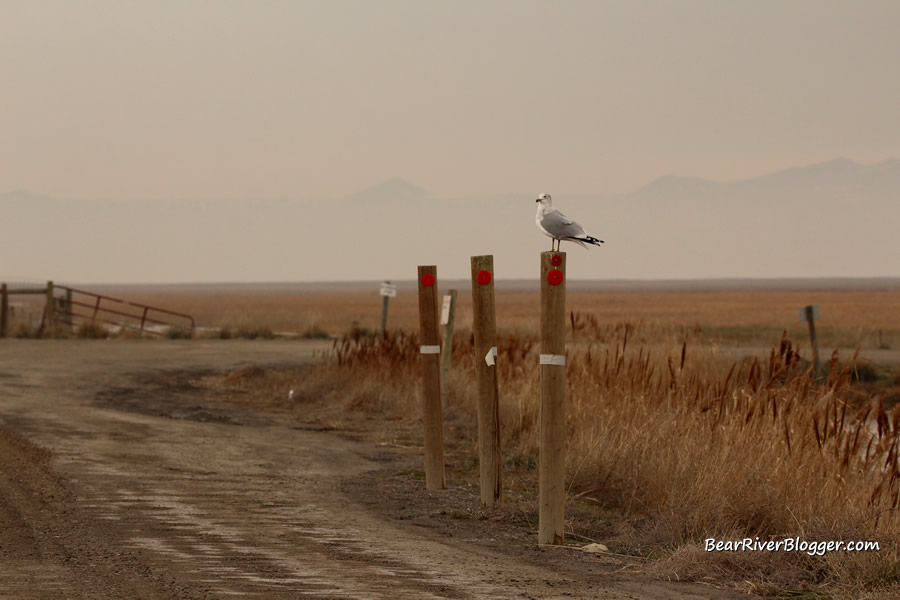
And it is these poles that oftentimes attract ring-billed gulls during winter to land upon and perch for a bit, giving these graceful seabirds a place to rest from their constant cruising of the wetlands for a daily meal.
During the deepest parts of winter, especially when the thermometer reads near or below freezing for the daily high temperature, I can almost always count on a ring-billed gull to be perched on one of these convenient poles.
Over the course of a couple of years now, this expectation for a friendly pose from a ring-billed gull has turned into a photographic obsession of sorts.
Nowadays, before I can truly concentrate on any other winter birds at Farmington Bay I have to first drive down to the southern end of the gravel road just to see if a ring-billed gull is perched atop one of the poles waiting for his picture to be taken.
I have taken countless images with gulls on these particular poles and so far every single one of them has indeed been a ring-billed gull.
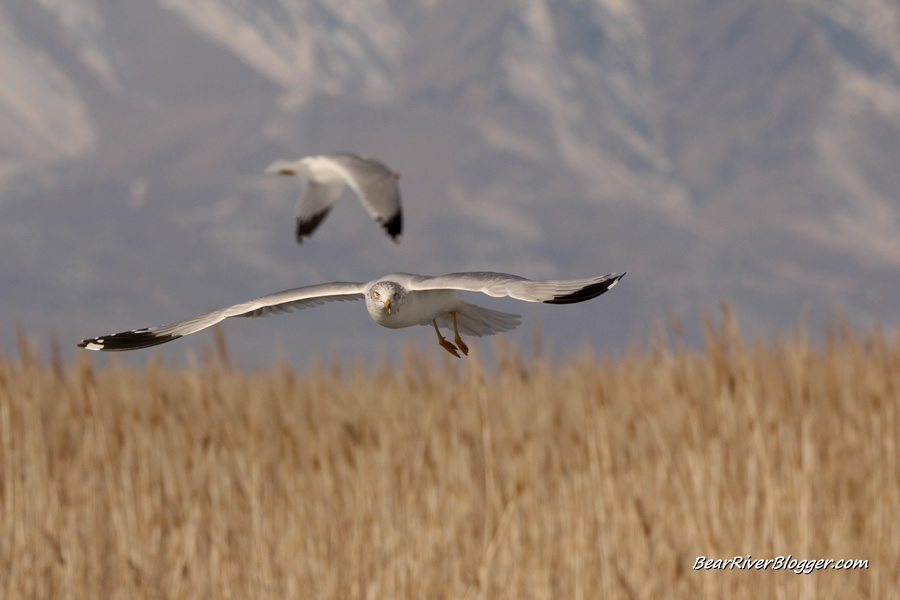
Suffice it to say since that is the case, the first gull I am inclined to actually learn something about will be the ring-billed gull so here it goes.
Ringed bill gulls can be found all over the United States and in parts of Canada and Mexico during various parts of the year for either breeding season, migration, or to spend the winter.
Breeding populations of ring-billed gulls are mainly in both Canada and the northern border regions of the United States, including states in the pacific northwest as far south as Idaho and sometimes into the far northern corners of California and Nevada.
During winter, ring-billed gulls fly to the more southern portions of the United States and into Mexico with some also wintering along both the East and West coasts.
The ring-billed gull’s diet includes fish, insects, worms, grain, and even rodents on occasion.
It has even been written westerly populations of ring-billed gulls may even forgo fish to feed on agricultural fields, giving me a reason to pay more attention to when my neighbors are plowing their fields and hundreds of unidentified gulls arrive to feed on worms from the freshly overturned earth.
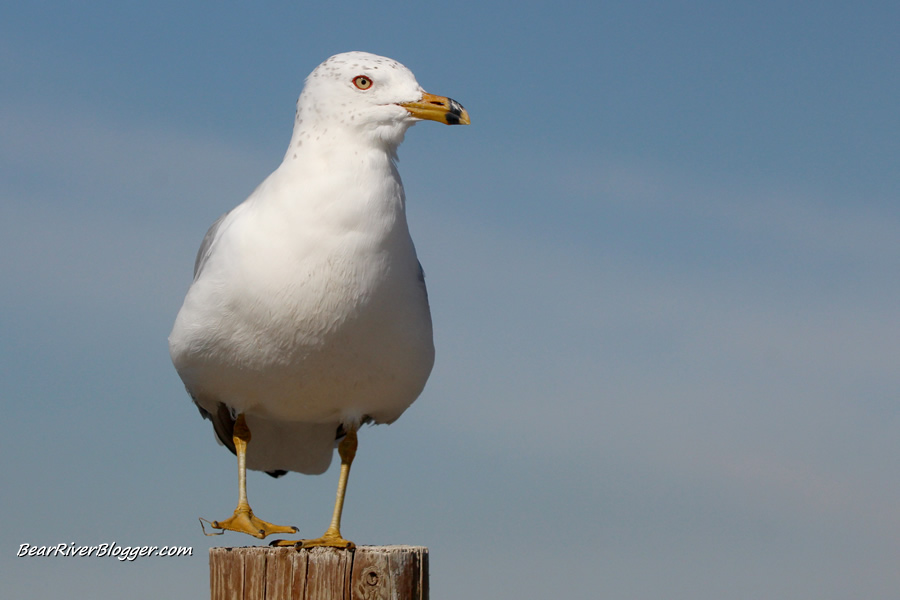
This newly found information makes me wonder if what I’ve been seeing are in fact ring-billed gulls during some of my neighbor’s early season plowings in mild, short winters.
Either way, I am now going to start paying a bit more attention to gulls, especially during winter as Utah does have a few species of gulls that either migrate through or stop over and winter here for a few short months before heading back to their breeding grounds further north.
Subscribe to Bear River Blogger
If birds are your pleasure, I offer you to head on over to our subscribe page and sign up for email notifications for future blog posts about our birdwatching and nature photography excursions on and around the famed Bear River Migratory Bird Refuge.
We also suggest taking a peek at our small but growing YouTube channel where we post regular updates about the birdwatching conditions on the Bear River Migratory Bird Refuge auto tour route as well as the occasional short nature clips when we can capture them with our camera.
Let’s Go BirdWatching Yellow-headed Blackbird T-shirts And Hoodies
Show off your love for bird watching and the Yellow-headed Blackbird as well as support our website and YouTube channel with this unique line of “Let’s Go Bird Watching” Yellow-headed Blackbird hooded sweatshirts, currently available in both t-shirts and hooded sweatshirts in a variety of sizes and colors.

